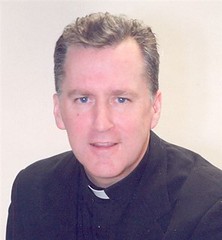The main lesson that Jesus gives us today is to be alert. We must keep the flame of faith alive in our heart. This flame is lit with the oil of charity and prayer; charity performed through and for the love of God.
It was a great honor for the bridesmaids to be chosen to members of the bridal party, but not all the members were ready when the Bridegroom came. Their lamps were going out of oil.
The Bible often uses the symbol of a Bride and Bridegroom to symbolize the love between God and his people; between Christ and his Church. As a Bride becomes one flesh with her Bridegroom, so Christ, the Divine Bridegroom becomes one with his Church. He sacrifices himself for her, even to the point of offering his life for her. All the members of the Church form part of that Mystical Body. In this Gospel the Church is also symbolized by the whole bridal party. We are reminded of what Christ says in another Gospel passage that many are called, but few are chosen. (cf. Mt. 22, 14)
The Gospel reminds us that we not saved automatically simply by being members of the Church. Unless we are striving for holiness we can’t hope to enter the Kingdom of God. In his document Dominus Iesus, written when he was the Prefect for the Congregation for the Doctrine of the Faith, Pope Benedict XVI teaches us the following:
“22. With the coming of the Saviour Jesus Christ, God has willed that the Church founded by him be the instrument for the salvation of all humanity (cf. Acts 17:30-31).90 This truth of faith does not lessen the sincere respect which the Church has for the religions of the world, but at the same time, it rules out, in a radical way, that mentality of indifferentism “characterized by a religious relativism which leads to the belief that ‘one religion is as good as another'”.91 If it is true that the followers of other religions can receive divine grace, it is also certain that objectively speaking they are in a gravely deficient situation in comparison with those who, in the Church, have the fullness of the means of salvation.92 However, “all the children of the Church should nevertheless remember that their exalted condition results, not from their own merits, but from the grace of Christ. If they fail to respond in thought, word, and deed to that grace, not only shall they not be saved, but they shall be more severely judged”.93 One understands then that, following the Lord's command (cf. Mt 28:19-20) and as a requirement of her love for all people, the Church “proclaims and is in duty bound to proclaim without fail, Christ who is the way, the truth, and the life (Jn 14:6). In him, in whom God reconciled all things to himself (cf. 2 Cor 5:18-19), men find the fullness of their religious life”.94”
We must keep the flame of faith alive in our hearts through prayer, reception of the sacraments and works of charity, especially towards those who are least among us, so that when Christ calls us, and we never know when that time will be, we'll be ready to enter his Eternal Kingdom to take part in the Great Wedding Feast.
See the following links for more comentary on the parable of the foolish virgins:
http://www.catholicdoors.com/homilies/205/051106.htm
http://www.newadvent.org/fathers/200178.htm
http://www.rc.net/wcc/readings/matt25v1.htm
http://www.stjohndc.org/russian/Parables/e_Par_3_27.htm
For Dominus Iesus see:
http://www.vatican.va/roman_curia/congregations/cfaith/documents/rc_con_cfaith_doc_20000806_dominus-iesus_en.html
---end---
Subscribe to:
Post Comments (Atom)

No comments:
Post a Comment